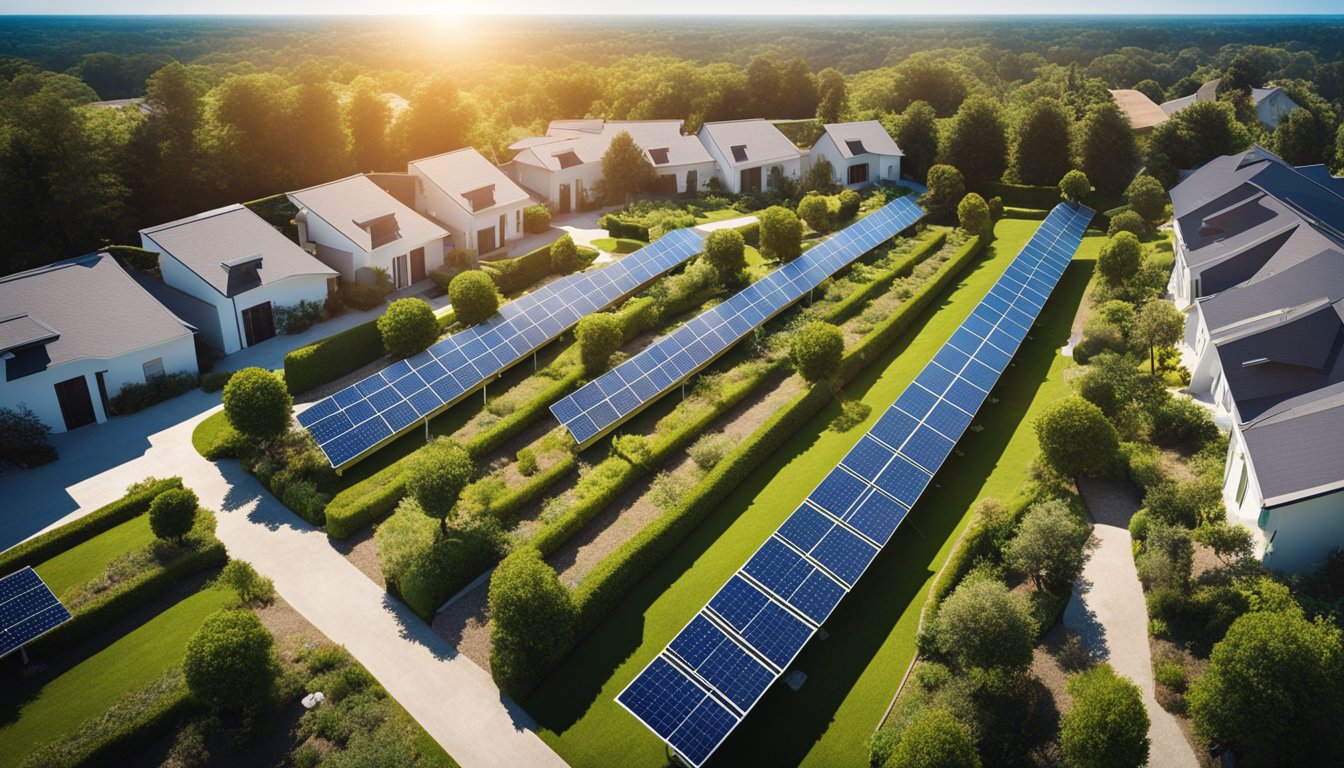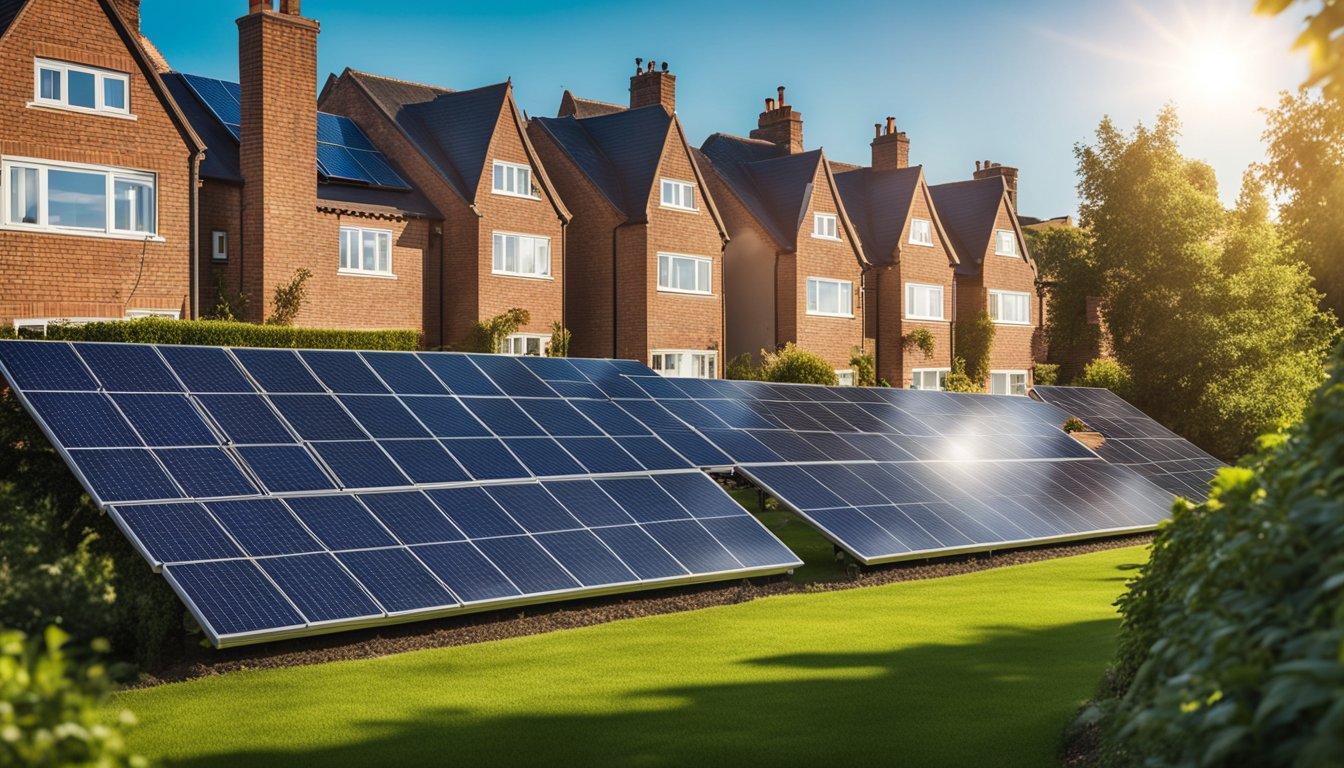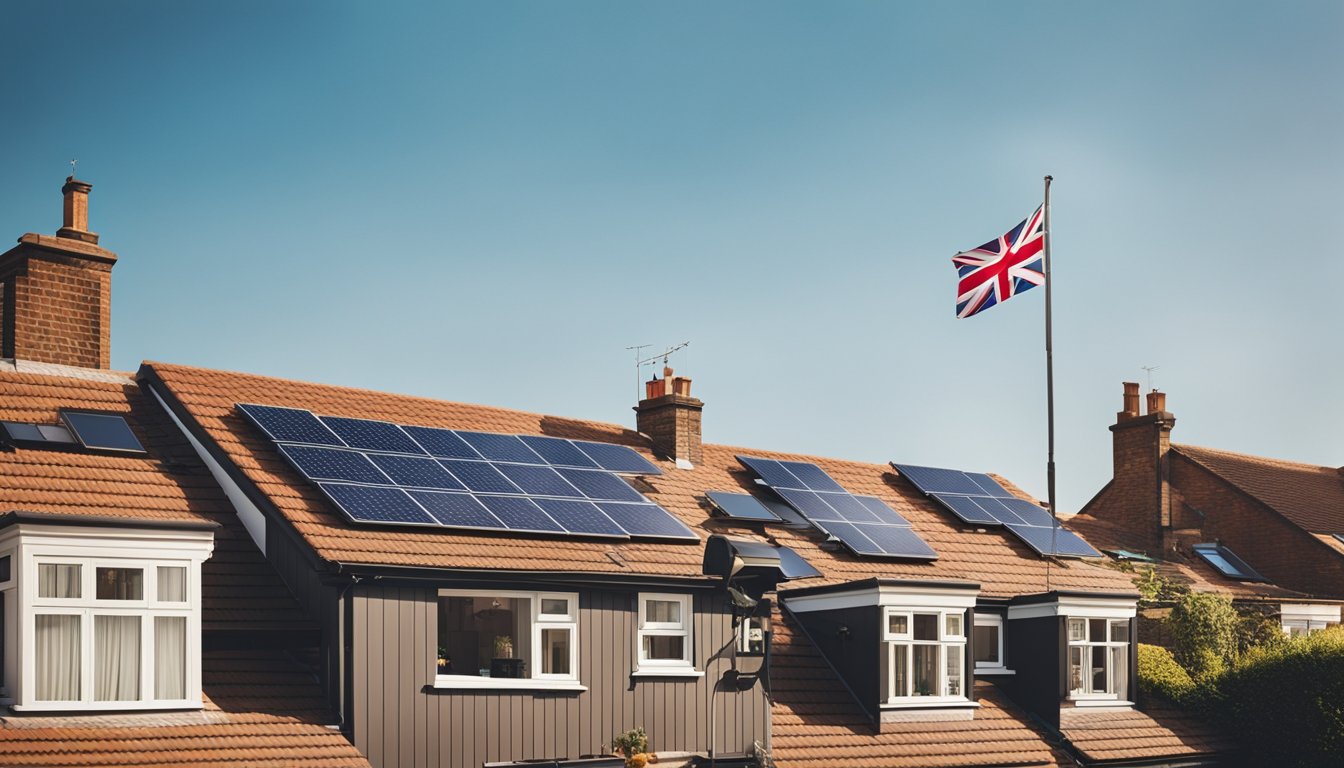Late updated: 15 Jan 2025 12:01
Written by: Eleanor Hartman
Solar Panel Incentives For UK Homeowners In 2024: Maximising Savings and Sustainability
As we step into 2024, many UK homeowners are considering the benefits of solar panel installation to boost energy efficiency and reduce electricity costs. Navigating the available incentives can make this transition more affordable and appealing. The UK government offers various grants and incentives to reduce installation costs, including financial support that could potentially slash your upfront expenses.

Investing in solar panels not only helps cut down on energy bills but also contributes significantly towards a sustainable future. With electricity prices soaring, the return on investment is increasingly attractive. We can take advantage of schemes that pay homeowners for exporting excess power back to the grid, offering another financial benefit.
Understanding the full scope of these incentives is key to making a smart investment in solar energy. Many homeowners discover that these programmes significantly improve their home's energy ratings and overall market value. With extensive government support and the declining cost of solar technology, this is an opportune moment to explore solar energy solutions.
Key Takeaways
- Government incentives significantly lower solar installation costs.
- Solar panels can reduce energy bills and enhance home value.
- Understanding incentives maximises solar investment benefits.
Understanding Solar Panel Incentives in the UK
In 2024, UK homeowners can benefit from a variety of incentives aimed at making solar panel installation more affordable. These incentives not only lower costs but also encourage the adoption of renewable energy sources.
Government Incentives and Schemes
Several government-backed schemes can assist homeowners in offsetting the costs associated with solar panel installations. The Energy Company Obligation (ECO4) supports energy efficiency improvements for low-income households, aiming to alleviate fuel poverty. Local councils may offer Local Authority Flexible Eligibility (LA Flex) to extend these benefits further.
The Smart Export Guarantee (SEG) allows homeowners to sell excess energy generated by their solar panels back to the grid, contributing to energy cost savings. Though the Feed-in Tariff is closed to new applicants, these programs continue to support renewable adoption cautiously.
Financial Benefits and Support
The financial incentives extend beyond initial grants. The Zero VAT policy on solar panel installations facilitates further cost reductions. This VAT relief minimizes upfront expenses significantly, making renewable energy adoption more appealing. Tax breaks may also apply, providing additional financial relief for those eligible.
By participating in the Smart Export Guarantee, homeowners can earn revenue by supplying unused energy back to the grid. This not only reduces energy bills but enhances the economic return of a solar PV system over its lifetime. Together, these financial aids create an attractive financial landscape for solar investment.
Eligibility and Access
Eligibility for these incentives varies. The ECO4 Grant targets specific low-income groups, such as those on Housing Benefit or Pension Credit Guarantee. To access LA Flex benefits, meeting specified income thresholds and local council criteria is necessary. Private tenants may have limited options depending on landlord agreements.
For initiatives like SEG, adopting a compliant solar system and registering with an energy supplier is crucial. The Home Upgrade Scheme (HUG2) and similar programs might be available locally, requiring thorough research into specific area options. Understanding the criteria and accessing these incentives is our key to maximising solar benefits.
Maximising the Impact of Solar Panels

Maximising the impact of solar panels involves wisely choosing technology and installation methods, optimising energy usage for greater savings, and engaging with local programmes. By focusing on these areas, we can significantly reduce costs and enhance the efficiency of solar energy systems.
Solar Technology and Installation
Choosing the right solar technology and a competent solar installer is crucial. Modern solar panel systems with high conversion efficiency can generate more electricity. Units with incorporated solar batteries store energy for use when the sun isn’t shining, boosting energy independence.
Effective installation focuses on positioning panels to receive maximum sunlight throughout the year. Angle and direction matter—south-facing roofs typically provide optimal exposure. Quality insulation and heating systems can also enhance efficiency, reducing overall energy demands. Solar panel costs can be offset by government-supported schemes facilitating affordable installation.
Optimising Energy Use and Savings
Energy Performance Certificate (EPC) ratings can significantly improve with solar installation, making homes more energy-efficient and attractive to buyers. Additionally, understanding energy needs helps in optimising energy use. Installing a smart meter allows us to monitor consumption patterns, enabling more informed decisions on utility usage.
Savings can be optimised through programmes like the Smart Export Guarantee where we can sell surplus energy back to the grid. Efficient appliances and a shift toward LED lighting further minimise consumption. By timing energy use, such as operating high-demand appliances during peak sunlight, we can reduce reliance on traditional energy suppliers.
Local Programmes and Community Projects
Participating in community projects enhances access to solar technology. Solar Together and initiatives like Warm Homes Nest Scheme offer group purchasing options for homeowners, reducing individual costs through economies of scale. These collective efforts not only lower solar panel costs but also streamline the purchasing process.
In Scotland, the Home Energy Scotland Grant and Loan Scheme provides financial support, encouraging wider adoption of solar technology. Community-led projects help foster a sharing of resources like battery storage, further supporting energy independence as we embrace sustainable living practices. Engaging with these local programmes amplifies the benefits of installing solar panels in our communities.
Frequently Asked Questions

We explore various inquiries about solar panel incentives for homeowners in the UK in 2024. With different government grants, eligibility criteria, and changes in installation costs, it's crucial to address these aspects clearly and concisely.
What government grants are available for solar panel installation for UK homeowners in 2024?
In 2024, several grants aim to assist homeowners in the UK with solar panel installations. For example, various schemes reduce initial expenditures through financial support. Specific grant types and eligibility vary by region, so homeowners should research options relevant to their local area.
How can I determine if I am eligible for free solar panel incentives as a UK homeowner?
Eligibility for free solar panel incentives depends on several factors, including income level, property type, and insulation standards. Checking with local councils or government websites can provide more detailed information and application guidance.
Are there any specific solar panel incentives or grants for disabled homeowners in the UK?
Certain schemes specifically aid disabled homeowners, potentially offering additional financial support. These might include bespoke grants or higher funding percentages. It's advisable for disabled individuals to consult relevant organisations for tailored financial assistance.
Is the cost of solar panel installation expected to decrease in the UK in 2024?
Despite rising energy bills, solar panel costs have decreased recently, benefiting potential buyers. In 2024, this trend could continue, making installation more affordable. Coupled with government incentives, solar panels may become a more cost-effective energy solution.
Can UK homeowners claim solar panel costs on their taxes?
Homeowners may benefit from certain tax reliefs or rebates when installing solar panels. While direct tax deductions may not apply widely, specific energy-saving incentives or reduced VAT rates might be available. Consulting with a tax advisor can clarify potential claims.
What financial support is available for businesses looking to install solar panels in 2024?
Businesses in the UK can access financial support such as grants and loan schemes. These incentives encourage the adoption of renewable energy solutions. Companies should investigate government programs tailored for commercial solar installations to maximise benefits.